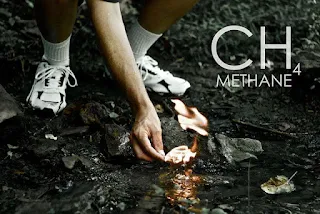Nigeria Emits the Highest Methane Emissions in Africa
The top ten African countries ranked by annual methane emissions measured in megatons.
Nigeria, a country in Africa, is facing the challenge of being the largest emitter of methane gas, which is known to be a potent greenhouse gas that contributes significantly to environmental issues like climate change.
However, Nigeria has taken some steps to address this issue by implementing policies and regulations that aim to reduce the flaring of natural gas in the oil and gas sector. The Nigerian government is also working on strengthening policies and regulations related to environmental protection and climate change to combat this issue.
Methane (CH4) is a gas that is odorless, colorless, and tasteless. It is also lighter than air. Methane is a type of greenhouse gas that is released when organic material breaks down. This can happen from both natural and human-influenced processes.
Sources of human-influenced methane emissions include the production and transportation of coal, natural gas, and oil; decomposition of organic waste in landfills; agricultural activities; stationary and mobile combustion; wastewater treatment; and specific industrial processes.
Agricultural activities such as rice cultivation and livestock farming are widely practiced in several African countries, including Nigeria, Ethiopia, Sudan, and the DRC. These activities are essential for the livelihoods of millions of people in the region. However, they also have significant environmental impacts, contributing significantly to methane emissions.
Deforestation and changes in land use patterns, often driven by urbanization and agricultural expansion, can release methane stored in soils and vegetation. Methane emissions can also result from natural processes, such as wetland areas in the Nile Delta and other regions, where anaerobic conditions favor methane production by microorganisms.
Methane emissions lead to poor air quality, health issues for animals and humans, and reduced crop yields. Methane emissions also contribute to climate change. Methane is a potent greenhouse gas that can trap heat in the atmosphere, leading to global warming and climate change.
According to 2020 estimates, the top 10 highest methane emissions in Africa are emitted by Nigeria, Ethiopia, Sudan, DRC, Egypt, Tanzania, South Africa, Algeria, Libya and Kenya.
Nigeria methane emissions: 143.99 megatons
Ethiopia methane emissions: 114.21 megatons
Sudan methane emissions: 75.1 megatons
Democratic Republic of the Congo methane emissions: 61.24 megatons
Egypt methane emissions: 59.68 megatons
Tanzania methane emissions: 59.08 megatons
South Africa methane emissions: 55.89 megatons
Algeria methane emissions: 49.94 megatons
Libya methane emissions: 45.76 megatons
Kenya methane emissions: 37.65 megatons

